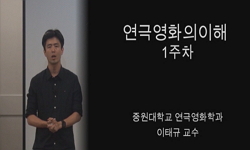This is to study the war between Joseon and Yan at the reign of King Zhao in the third century B.C. The Joseon in the war was Kija Joseon. Since Kija Joseon was a feudal state of Old Joseon, it is possible to say that the war against Yan was fought by...
http://chineseinput.net/에서 pinyin(병음)방식으로 중국어를 변환할 수 있습니다.
변환된 중국어를 복사하여 사용하시면 됩니다.
- 中文 을 입력하시려면 zhongwen을 입력하시고 space를누르시면됩니다.
- 北京 을 입력하시려면 beijing을 입력하시고 space를 누르시면 됩니다.
https://www.riss.kr/link?id=A82338655
- 저자
- 발행기관
- 학술지명
- 권호사항
-
발행연도
2009
-
작성언어
Korean
- 주제어
-
등재정보
KCI등재
-
자료형태
학술저널
- 발행기관 URL
-
수록면
247-264(18쪽)
-
KCI 피인용횟수
5
- 제공처
-
0
상세조회 -
0
다운로드
부가정보
다국어 초록 (Multilingual Abstract)
This is to study the war between Joseon and Yan at the reign of King Zhao in the third century B.C. The Joseon in the war was Kija Joseon. Since Kija Joseon was a feudal state of Old Joseon, it is possible to say that the war against Yan was fought by Old Joseon as well.
According to sources, the ruler of Yan dispatched Qin Kai to invade the 2000 li of the western territory of Old Joseon. In addition to Kija Joseon, Jinbeon is also said to have suffered the invasion at that time. Since Jinbeon was also a feudal state of Old Joseon, the central government of Old Joseon could not help but sending their troops to protect Jinbeon.
It has been generally understood so far that Old Joseon lost their western territory of 2000 li and transformed into small state at that time. The border between Joseon and Yan after the war was Manbanhan which is believed to have been about 2000 li east from the original border. But these are wrong. Manbanhan was indeed located rather west from the original border. This leads me to suspect that, due to the counterattack by Old Joseon, Yan relinquished the territory they took to Old Joseon and eventually lost parts of their own territory.
The war between Joseon and Yan was the first great war between the civilization in Northeast Asia (the powers in the Korean peninsula, Liaoxi, and Liaodong) and that of the Yellow River. If Yan really invaded the western territory of 2000 li, they occupied the entire Liaoxi or reached even Liaodong. The damages suffered in the regions from the war must have been very serious.
The indigenous people in present-day Liaoxi (contemporary Liaodong) escaped from the war to Liaodong and neighboring regions including the Korean peninsula, continuing a series migration toward east. This led to a cultural mixture between the refugees and the local populations, giving birth to a new culture.
목차 (Table of Contents)
- Ⅰ. 머리말
- Ⅱ. 조ㆍ연전쟁의 발발과 전쟁의 성격
- Ⅲ. 조ㆍ연 전쟁의 진행과 전쟁의 확대
- Ⅲ. 滿番汗의 위치에 대한 종래의 견해
- Ⅳ. 조ㆍ연전쟁의 결과와 국경
- Ⅰ. 머리말
- Ⅱ. 조ㆍ연전쟁의 발발과 전쟁의 성격
- Ⅲ. 조ㆍ연 전쟁의 진행과 전쟁의 확대
- Ⅲ. 滿番汗의 위치에 대한 종래의 견해
- Ⅳ. 조ㆍ연전쟁의 결과와 국경
- Ⅴ. 결론
- 〈참고문헌〉
- 〈Abstract〉
참고문헌 (Reference)
1 "遼史"
2 리지린, "고조선연구" 학우서방 1964
3 "魏略"
4 "漢書"
5 李丙燾, "浿水考" (13) : 1933
6 丁若鏞, "朝鮮考 in: 疆域考 卷1"
7 鄭寅普, "朝鮮史硏究 上" 서울신문사출판국 1946
8 "晉書"
9 申采浩, "平壤浿水考 in: 朝鮮史硏究草" 1926
10 "太康地理志"
1 "遼史"
2 리지린, "고조선연구" 학우서방 1964
3 "魏略"
4 "漢書"
5 李丙燾, "浿水考" (13) : 1933
6 丁若鏞, "朝鮮考 in: 疆域考 卷1"
7 鄭寅普, "朝鮮史硏究 上" 서울신문사출판국 1946
8 "晉書"
9 申采浩, "平壤浿水考 in: 朝鮮史硏究草" 1926
10 "太康地理志"
11 "大明一統志"
12 "史記"
13 "三國志"
동일학술지(권/호) 다른 논문
-
- 고조선단군학회
- 박선희(Park Sun-Hee)
- 2009
- KCI등재
-
- 고조선단군학회
- 복기대(Bok Gi-Dae)
- 2009
- KCI등재
-
- 고조선단군학회
- 양민종(Yang Min-jong)
- 2009
- KCI등재
-
- 고조선단군학회
- 이도상(Lee Do-Sang)
- 2009
- KCI등재
분석정보
인용정보 인용지수 설명보기
학술지 이력
| 연월일 | 이력구분 | 이력상세 | 등재구분 |
|---|---|---|---|
| 2026 | 평가예정 | 재인증평가 신청대상 (재인증) | |
| 2021-02-18 | 학회명변경 | 한글명 : 단군학회 -> 고조선단군학회영문명 : Dangun Studies Association -> Gojoseon & Dangun Studies Association |  |
| 2021-02-18 | 학술지명변경 | 한글명 : 단군학연구 -> 고조선단군학외국어명 : Journal of Dangun Studies -> The Journal of Gojoseon & Dangun Studies |  |
| 2020-01-01 | 평가 | 등재학술지 유지 (재인증) |  |
| 2018-04-03 | 학술지명변경 | 한글명 : 고조선단군학 -> 단군학연구외국어명 : The Journal of Gojoseon & Dangun Studies -> Journal of Dangun Studies |  |
| 2017-06-27 | 학회명변경 | 한글명 : 고조선단군학회 -> 단군학회영문명 : Gojoseon & Dangun Studies Association -> Dangun Studies Association |  |
| 2017-01-01 | 평가 | 등재학술지 선정 (계속평가) |  |
| 2016-01-01 | 평가 | 등재후보학술지 유지 (계속평가) |  |
| 2015-12-01 | 평가 | 등재후보로 하락 (기타) |  |
| 2011-04-11 | 학회명변경 | 한글명 : 단군학회 -> 고조선단군학회영문명 : 미등록 -> Gojoseon & Dangun Studies Association |  |
| 2011-04-11 | 학술지명변경 | 한글명 : 단군학연구 -> 고조선단군학외국어명 : Journal of Dangun Studies -> The Journal of Gojoseon & Dangun Studies |  |
| 2011-01-01 | 평가 | 등재학술지 유지 (등재유지) |  |
| 2008-01-01 | 평가 | 등재학술지 선정 (등재후보2차) |  |
| 2007-01-01 | 평가 | 등재후보 1차 PASS (등재후보1차) |  |
| 2006-01-01 | 평가 | 등재후보학술지 유지 (등재후보2차) |  |
| 2005-01-01 | 평가 | 등재후보 1차 PASS (등재후보1차) |  |
| 2003-07-01 | 평가 | 등재후보학술지 선정 (신규평가) |  |
학술지 인용정보
| 기준연도 | WOS-KCI 통합IF(2년) | KCIF(2년) | KCIF(3년) |
|---|---|---|---|
| 2016 | 0.29 | 0.29 | 0.29 |
| KCIF(4년) | KCIF(5년) | 중심성지수(3년) | 즉시성지수 |
| 0.31 | 0.33 | 0.741 | 0.17 |




 KCI
KCI DBpia
DBpia






